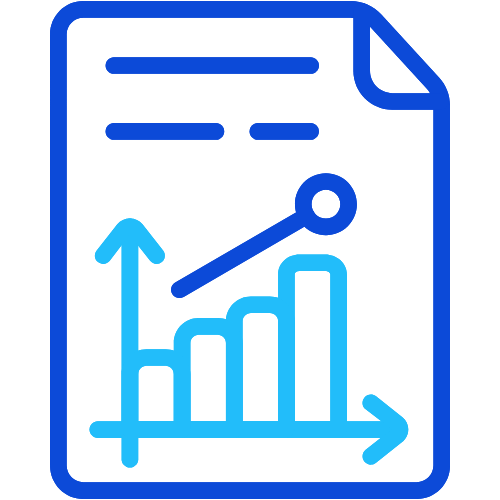How Recent Changes in GAAP Standards Affect Your Financial Statements
Table of Contents
ToggleUnderstanding the latest changes in Generally Accepted Accounting Principles (GAAP) is crucial for businesses to maintain accurate financial reporting. GAAP, along with International Financial Reporting Standards (IFRS), ensures that companies follow consistent accounting rules, making it easier for investors and stakeholders to compare financial statements across industries and countries. Recent updates in GAAP have brought new rules and requirements that impact how financial information is recorded and presented, affecting various elements like assets, liabilities, income, and disclosures.
Generally Accepted Accounting Principles have changed. The accounting rules have been enhanced to reflect new rules that charge companies with recording and presenting specific information regarding financial reporting. The updates affect a company’s assets with liabilities and disclosures. This consistency in the financial statement is easier which makes it possible for investors and stakeholders to compare various companies among different sectors. GAAP(Generally Accepted Accounting Principles) is instrumental in ensuring standardization in reporting financial statements to satisfy regulatory demands and instill investor confidence.
Major Changes and How They Influence Financial Statements
Leases
- Companies have to account for most of the leases on their balance sheet under the new lease standard. This aspect will lead to the reflection of lease assets and liabilities. Thus making the financial position of a company more transparent.
- This may impact key financial ratios such as debt-to-equity which may be considerably higher due to the presence of lease liabilities. This change is part of a trend that brings GAAP closer in line with International Financial Reporting Standards.
- It will probably impact some significant financial ratios including debt-to-equity in liabilities resulting from lease obligations. This may be large enough to make a difference. Updating GAAP toward IFRS(International Financial Reporting Standards) which had already implemented a similar change.
Credit Losses
- The introduction of the Current Expected Credit Loss (CECL) model changes the way companies account for potential losses on financial assets. Businesses only recognized credit losses when they were incurred. They are required to estimate and record expected losses earlier under the new model.
- This can result in increased bad debt provisions and reduced net income. Thus affecting the bottom line. Both GAAP and IFRS are seeking to provide a more forward-looking approach to credit loss recognition.
- The CECL model demands earlier recognition of credit losses that can result in higher bad debt provisions and potentially lower net income. This approach offers a more conservative view of a company’s financial health.
Crypto Assets
- As new accounting and disclosure rules have been implemented by GAAP on crypto assets more companies are now hosting cryptocurrencies. These assets are volatile in value. Companies now have the mandate to provide clear information about their holdings in financial statements.
- These steps improve transparency and align with the efforts of IFRS to ensure that companies accurately reflect the value of all assets. This includes digital ones as well.
- GAAP now measures crypto assets to fair value with impairments recognized through the financials. This ensures a reflection of the true values of such volatile assets in terms of monetary values. This helps investors obtain a clearer insight into the true position of a particular company’s position.
Income Taxes
- GAAP has updated its rules regarding the disclosures of income tax. The rules require that companies report more detailed information on tax items such as deferred taxes and tax credits. This enhances transparency on tax-related financial items.
- This also aligns with the IFRS(International Financial Reporting Standards) set as regards detailed and transparent tax reporting.
- Under GAAP the income tax disclosure updates can present a clearer view of a firm’s overall tax liabilities with assets and strategies. This updated detail allows business operations to manage their tax better and ensures that they will comply with changing regulations.
Segment Reporting
- Changes to segment reporting require that businesses provide more detailed information on the performance of different business segments. This allows investors and stakeholders to better understand how each part of the company is performing.
- IFRS encourages detailed segment reporting to provide a clearer picture of a company’s financial health similar to GAAP.
- Segment reporting rules under GAAP have updated companies to report information that reflects how management reviews performance internally. The financial data provided to investors will reflect the operational structure of the company.
Supplier Finance Programs
- Additional disclosure of such programs was required under GAAP for supplier finance programs by which companies provide extended payment terms to suppliers. Such programs affect cash flows as well as the liability side. Thus these new standards ensure proper disclosure of this activity in financial statements.
- GAAP and IFRS are also striving for transparency in these forms of financial arrangements.
- The new disclosure requirements for supplier finance programs under GAAP ensure companies disclose information in a transparent way regarding the cash flow impact and liability. Investors and stakeholders will therefore be better equipped to understand the impact of these arrangements on liquidity and financial ratios. In general, the financial health of the business is of concern.
Codification Improvements
- Recent amendments aim to simplify the GAAP framework by removing references to outdated concept statements. This makes it easier for companies to apply GAAP rules but may require updating internal accounting policies.
- These improvements help streamline the accounting process while ensuring that GAAP(Generally Accepted Accounting Principles) remains aligned with IFRS(International Financial Reporting Standards) principles.
- The codification improvements give more clarity through the consolidation and organization of GAAP standards in a more user-friendly manner. This streamlines the process and reduces confusion. This also allows for consistent application of accounting rules and provides better decision-making both for companies and auditors.
Services provided by Meru Accounting
- GAAP Compliance & Financial Reporting: Meru Accounting ensures that the business is compliant with Generally Accepted Accounting Principles (GAAP) to ensure that the financial statements are accurate, transparent, and in line with industry standards.
- Lease Accounting Guidance: We help navigate the new lease accounting standards. This ensures proper recording of lease assets and liabilities and analyzes the impact on key financial ratios.
- Credit Losses (CECL Implementation): Meru Accounting also assists with the implementation of the CECL model. This will allow businesses to better estimate and record expected credit losses earlier hence improving financial forecasting.
- Crypto Asset Accounting: We assist in accounting for cryptocurrency holdings and provide expert advice on how to comply with GAAP and ensure proper disclosure of crypto assets in financial statements.
- Tax Reporting & Strategy: Our team assists businesses in compliance with updated tax disclosure requirements and optimizing tax planning strategies to make income tax reporting transparent.
- Segment Reporting & Financial Analysis: We help with segment reporting which provides detailed financial information that indicates the operational performance of your company by GAAP and IFRS standards.
- Supplier Finance Program Disclosures: Meru Accounting provides transparent reporting of supplier finance programs to help companies comply with new GAAP disclosure requirements.
Conclusion
Staying up-to-date with the latest changes in Generally Accepted Accounting Principles (GAAP) and International Financial Reporting Standards (IFRS) is crucial for businesses to maintain accurate and compliant financial reporting. These updates impact key areas such as asset valuation with tax reporting and segment disclosures. To ensure your business remains compliant and utilizes the benefits of these changes you can partner with an experienced accounting team which is essential. Meru Accounting can guide you through these updates and provide expert support to keep your financial reporting aligned with the latest GAAP and IFRS standards, ensuring both transparency and compliance.
Frequently Asked Questions (FAQs)
1. How will the new GAAP changes affect revenue recognition?
- Ans. The new GAAP standards require more detailed disclosure of revenue recognition practices. Meru Accounting has procedures to make sure your company complies with the changes and updates policies and procedures accordingly.
2. Do the changes affect lease accounting?
- Ans. Yes, leases are now reported on the balance sheet which increases transparency. Meru Accounting helps in the transition to the new lease accounting rules, ensuring proper classification.
3. What does the new GAAP standard mean for financial statement presentation?
- Ans. The new standards provide clearer guidelines on balance sheet classification and income statement reporting. Meru Accounting can guide you through these updates to maintain accuracy.
4. What are the implications of these changes for fair value measurements?
- Ans. The revisions clarify the requirements for measuring and disclosing fair value. Meru Accounting helps ensure your fair value estimates are performed by current principles.
5. What impact do these changes have on non-profit financial reporting?
- Ans. Non-profits will need to align with more specific principles related to revenue and expense recognition. Meru Accounting has experience with navigating these changes to ensure accurate reporting for your organization.
6. How can Meru Accounting help my business stay compliant with GAAP and IFRS updates?
- Ans: Meru Accounting ensures your financial reporting aligns with the latest GAAP and IFRS changes, covering asset valuation, tax reporting, and disclosures. Our experts provide seamless guidance to maintain compliance and transparency.
7. Why should I choose Meru Accounting for GAAP and IFRS compliance support?
- Ans: We offer expert accounting solutions with global experience, ensuring accurate financial reporting. Our tailored approach helps businesses stay compliant, reduce risks, and improve financial efficiency.

























































































